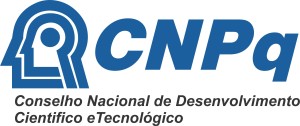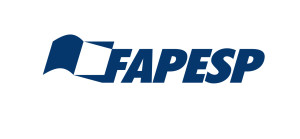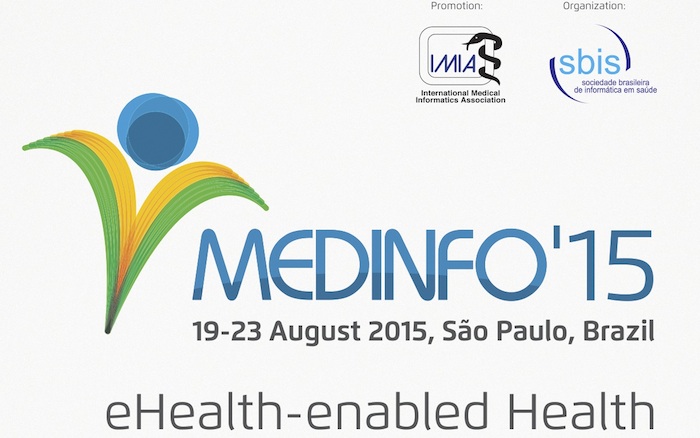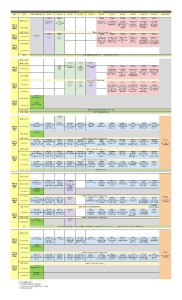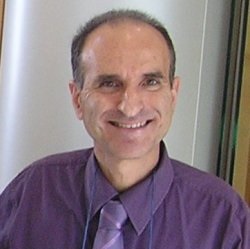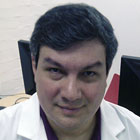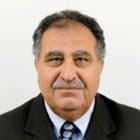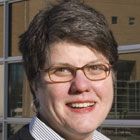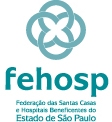| Title |
Authors |
Board |
| Developing an Electronic Medical Record for Interlinked Care Services in Haiti |
Adias Marcelin, Christian Perodin, Carly Baja, Bright Dgndy Alexandre, Jean Duperval, Mariot Duplan, Frantz Derilus, Stephany Duda, Jean W Pape |
1 |
| Perceived Reasons for High and Low Quality Observational HIV Research Data |
Stephany Duda, Catherine McGowan, Cynthia Gadd |
2 |
| Health Information Needs for Child-in-Care |
Cori Thompson |
3 |
| The e-NutriHS: a web-based system for a Brazilian cohort study |
Luciana Dias Folchetti, Isis Tande da Silva, Bianca de Almeida Pitito, Sandra Roberta Gouvea Ferreira |
4 |
| Semantic Interoperability in Clinical Decision Support Systems: A Systematic Review |
Luis Marco-Ruiz, Johan Gustav Bellika |
5 |
| Web-based Video Conferencing Services in Healthcare: One Communication Platform to Support All |
Andrius Budrionis, Per Hasvold, Gunnar Hartvigsen, Johan Gustav Bellika |
6 |
| Enhancing tele-collaboration Networks by Patient Participation |
Martin Staemmler, Heiko Münch, Uwe Engelmann, Johannes Sturm |
7 |
| Introducing Home Blood Pressure Telemonitoring for Children with Hypertension |
McKenzie Bedra, Joseph Finkelstein |
8 |
| Description of a Mobile-based Electronic Informed Consent System Development |
Min-A Hwang |
9 |
| Exploring the challenges and opportunities of self-monitoring for sickle cell disease patients |
David-Zacharie Issom, Alexandra Zosso, Frederic Ehrler, Rolf Wipfli, Sabine Koch, Christian Lovis |
10 |
| Impact of a mobile health aplication in the nursing care plan compliance of a home care service in Belo Horizonte, Minas Gerais, Brazil |
Felipe Britto, Tatiana Martins, Gustavo Landsberg |
11 |
| Using mobile devices to improve the safety of medication administration processes |
Hernan Navas, Luciano Graffi Moltrasio, Eduardo Dourado, Manuel Alvarez |
12 |
| Developing an online decision app for osteoarthritis |
Glenn Salkeld, Sally Wortley, David Hunter, Jack Dowie |
13 |
| A Global Analysis of Approaches to Sharing Clinical Data with Patients |
Jennifer Prey, Fernanda Polubriaginof, Gilad Kuperman, Victoria Tiase, Sarah Collins, David Vawdrey |
14 |
| Rolling Medical Practice: Ambulant Mobile Medical Care for Rural Areas |
Jonas Schwartze, Klaus-Hendrik Wolf, Sebastian Schulz, Maike Rochon, Markus Wagner, Uwe Bannenberg, Markus Drews, Thomas Fischer, Torben Hellwig, Stefan Hofmann, Petra Höft-Budde, Ralf Jäger, Stefan Lorenz, Ruth Naumann, Maik Plischke, Jörg Reytarowski, Constanze Richter, Christiana Steinbrügge, Anja Ziegenspeck, Julius von Ingelheim, Reinhold Haux |
15 |
| An integrated workflow for secondary use of patient data for clinical research |
Guillaume Bouzillé, Emmanuelle Sylvestre, Boris Campillo-Gimenez, Eric Renault, Thibault Ledieu, Marc Cuggia |
16 |
| Evaluation of a Cyber Security System for Hospital Network |
Mohammad Faysel |
17 |
| Measuring ICTs Adoption in Health Care Facilities in Uruguay |
Cecilia MUXI, Juan Gil, Elisa Martinez, Juan Lozano, Rossana Occhiuzzi, Betania Arispe, Jorge Forcella |
18 |
| Open Source Software For Patient Data Management In Critical Care. |
Jacques Massaut, Nicolas Charretk, Olivia Gayraud, Rafael Van Den Bergh, Adelin Charles, Nathalie Edema |
19 |
| Service Quality: A Main determinant Factor for Health Information System Success in Low Resource Settings |
Binyam Tilahun, Fleur Fritz |
20 |
| The impact of an Electronic Medical Record on repeat laboratory test ordering across four Australian hospitals |
Andrew Georgiou, Elia Vecellio, Ling Li, Johanna Westbrook |
21 |
| Digital Imaging and Electronic Data Capture in Multi-Center Clinical Trials |
Thomas M. Deserno, Verena Deserno, Daniel Haak, Klaus Kabino |
22 |
| Hospitalization Discharge Summary: Standardization of Information Model |
Andréia Cristina Souza Santos, Claudia Moro, Zilma Reis |
23 |
| Integrating FHIR support for OpenMRS: A proposal for moving from a domain specific API to an standards based API |
Suranga Kasthurirathne, Burke Mamlin, Grahame Grieve, Paul Biondich |
24 |
| Archetype Development Process of Electronic Health Record of Minas Gerais |
Thais Maia, Cristiana De Muylder, Rodrigo Queiroga |
25 |
| A Trial of Nursing Cost Accounting using Nursing Practice Data on Hospital Information System |
Tadamasa Takemura, Akiko MIyahira, Kazuko Tada, Masatoshi Ishima, HIdenori Nagao, Tadashi MIyamoto, Yoshiaki Nakagawa |
26 |
| Study of screen design principles for visualizing medical records |
Kenichiro Fujita, Tadamasa Takemura, Tomohiro Kuroda |
27 |
| METHODOLOGY TO ESTABLISH ASSOCIATIONS BETWEEN DATAS AND CLINICAL ASSESSMENT FOR COMPUTERIZED NURSING PROCESS IN INTENSIVE CARE UNITS |
Daniela Barra, Grace Dal Sasso, Fernanda Paese |
28 |
| Clinical Decision Support Based on Integrated Patient Models: A Vision |
Kerstin Denecke |
29 |
| Clinical Disicion Support Using Electronic Medical Records: For the Improvement of Diabetes Care and Proper Use of Insulin for Inpatients |
Ryoma Seto, Susumu Wakabayashi |
30 |
| Computer Interpretable Clinical Guidelines: A Review and Analysis of Evaluation Criteria for Authoring Methods |
Soudabeh Khodambashi, Laura Slaughter, Øystein Nytrø |
31 |
| Internal domain-specific language based on Arden Syntax and FHIR |
Eizen Kimura, Ishihara Ken |
32 |
| Using Discrete Event Simulation to predict KPI´s at a Projected Emergency Room |
Francisco Ramis, Liliana Neriz |
33 |
| Virtual Oncological Networks – IT Support for an Evidence-based, Oncological Health Care Management |
Katja Heiden, Monika Sinha, Britta Böckmann |
34 |
| Why should I? – Acceptance of Health Information Technology among health professionals |
Joseph D’Souza, Inga Hunter |
35 |
| Usability Analysis Of A Customized Documentation System For Nurse Population-Health Managers |
Lincoln Sheets, Zhijian Luan, Tina Dillon |
36 |
| Digital Inclusion for Older Adults based on Physical Activities: an Age Concern |
Cristine Gusmão, Júlio Menezes Jr., Carmelo Pina, Juliana Lima, João Barbosa Neto |
37 |
| 3D CPR Game can Improve CPR Skill Retention |
Jia Li, Ying Wu, Yimin Xu, Yahong Xu, Peng Yue, Liu Sun, Ming Guo, Shuqin Xiao, Shu Ding, Yanyan Cui, Shulan Li, Qiuying Yang, Polun Chang |
38 |
| Machine assisted translation of health materials to Chinese: An Initial Evaluation |
Anne Turner, Loma Desai, Kristin Dew, Nathalie Martin, Katrin Kirchhoff |
39 |
| Type 1 diabetes in Twitter: who all listen to? |
Elia Gabarron, Alexandra Makhlysheva, Luis Marco |
40 |
| Factors Influencing Consent for Electronic Data Linkage in Urban Latinos |
Suzanne Bakken, Sunmoo Yoon, Niurka Suero-Tejeda |
41 |
| 2,000,000 electrocardiograms by distance: an outstanding achievement for telehealth in Brazil |
Milena S Marcolino, Maria Beatriz M. Alkmim, Leonardo Bonisson, Renato M Figueira, Antonio L Ribeiro |
42 |
| Audit of primary care electrocardiograms sent as emergency to a telehealth service – the Telehealth Network of Minas Gerais, Brazil |
Milena S Marcolino, Barbara C Carvalho, Aline M Lucena, Ana Luiza N França, Cristiane G Pessoa, Daniel S Neves, Maria Beatriz M. Alkmim |
43 |
| A Methodology for Adapting Psychoeducational Content to Mobile Platforms |
Stephanie Tucker, Sriram Iyengar, Amy Franklin |
44 |
| The role of the IT-department in Information system and Organizational Redesign |
Lone Stub Petersen |
45 |
| Proposal for a European Public Health Research Infrastructure for Sharing of health and Medical administrative data (PHRIMA) |
Anita Burgun, Dina V. Oksen, Wolfgang Kuchinke, , Thomas Ganslandt, Iain Buchan, Tjeerd van Staa, James Cunningham, Marianne L. Gjerstorff, Jean-Charles Dufour, Jean-Francois Gibrat, Macha Nikolski, Pierre Verger, Anne Cambon-Thomsen, Cristina Masella, Emanuele Lettieri, Paolo Bertele, Marjut Salokannel, Rodolphe Thiebaut, Charles Persoz, Genevieve Chene, Christian Ohmann |
46 |
| Healthcare in Disasters and the Role of RFID |
Samaneh Madanian, Dave Parry, Tony Norris |
47 |
| Measuring Population Health Using Electronic Health Records: Exploring Biases and Representativeness in a Community Health Information Exchange |
Brian Dixon, P. Joseph Gibson, Karen Frederickson-Comer, Marc Rosenman |
48 |
| A Novel Approach to Teach Medical Informatics |
Thomas Bürkle, Jürgen Holm, Rolf Gasenzer, François von Kaenel, Stephan Nüssli, Serge Bignens, Sang-Il Kim, Michael Lehmann |
49 |
| Education, Technology and Health Literacy |
Kurt Lindgren, Ina Koldkjaer Soelling, Per Caroee, Kirsten Siggaard Mathiesen |
50 |
| Social Network and Health researchers and professionals Mobility in Africa: lessons learned from AFRICA BUILD Project |
Seydou Tidiane TRAORE, Abdrahamane ANNE, Rada Hussein, Samuel BOSOMPRAH, Caroline Franck, Asa Cuzin, Maximo Ramirez-Robles, Brecht INGELBEEN, MOHAMED SANGARE, Mahamoudane NIANG, Cheick Oumar Bagayoko |
51 |
| Trends of Patient Safety Topics Addressed in the Past Five MEDINFO Congress |
Qiyan Zhang, Hiroshi Takeda |
52 |
| 3D printed models and navigation for skull base surgery. Case report and virtual validation. |
Lucas Eduardo Ritacco, Federico Di Lella, Axel Victor Mancino, Fernan Gonzalez Bernaldo de Quiros, Carlos Boccio, Federico Edgardo Milano |
53 |
| Identification of Incidental Pulmonary Nodules in Free-text Radiology Reports: An Initial Investigation |
Lucas Oliveira, Ranjith Tellis, Yuechen Qian, Karen Trovato, Gabe Mankovich |
54 |
| A Frequency-based Strategy of Obtaining Sentences from Clinical Data Repository for Crowdsourcing |
Dingcheng Li, Majid Rastegar-Mojarad, Yanpeng Li, Sunghwan Sohn, Saeed Mehrabi, Ravikumar Komandur Elayavilli, Yue Yu, Hongfang Liu |
55 |
| Development and evaluation of task specific natural language processing framework in China |
Caixia Ge, Yinsheng Zhang, Zhenzhen Huang, Zheng Jia, Meizhi Ju, Huilong Duan, Haomin Li |
56 |
| Automated Classification of Pathology Reports |
Michel Oleynik, Marcelo Finger, Diogo Patrão |
57 |
| An Optimized Superpixel Clustering Approach for High-Resolution Chest CT Image Segmentation |
Rafaelo Pinheiro da Rosa, Marcos d Ornellas |
58 |
| Methods for Sonic Representation of ST Depression During Exercise |
Minodora Andor, Anca Tudor, Sorin Paralescu, George Mihalas |
59 |
| Bridging the Gap from Bench to Bedside – An Informatics Infrastructure for Integrating Clinical, Genomics and Environmental Data (ICGED) |
Mohyuddin Mohyuddin |
60 |
| Data Curation: Improving Environmental Health Data Quality |
Lin Yang, Jiao Li, Li Hou, Qian Qing |
61 |
| Integrating data from multiple sources for data completeness in a web-based registry for pediatric renal transplantation – the CERTAIN Registry |
Lennart Köster, Kai Krupka, Britta Höcker, Axel Rahmel, Undine Samuel, Wouter Zanen, Gerhard Opelz, Caner Süsal, Bernd Döhler, Lukasz Plotnicki, Christian D. Kohl, Petra Knaup, Burkhard Tönshoff |
62 |
| On the correlation between geo-referenced clinical data and remotely sensed air pollution maps |
arianna dagliati, andrea marinoni, Riccardo Bellazzi |
63 |
| A Data Mining Approach to Identify Sexuality Patterns in a Brazilian University Population |
Priscyla Waleska Simões, Samuel Cesconetto, Larissa Letieli Toniazzo de Abreu, Merisandra Côrtes de Mattos Garcia, José Márcio Cassettari Junior, Eros Comunello, Luciane Bisognin Ceretta, Sandra Aparecida Manenti |
64 |
| Annotation methods to develop and evaluate an expert system based on natural langage processing in electronic medical records |
Quentin GIcquel, Nastassia Tvardik, Come Bouvry, Ivan Kergourlay, andre bittar, frederique segonf, Stéfan Darmoni, Marie-Helene METZGER |
65 |
| Automated detection of health websites’ HONcode conformity: can N-gram tokenization replace stemming? |
Celia Boyer, Ljiljana Dolamic, Natalia Grabar |
66 |
| Data Science Solution to Event Prediction in Outsourced Clinical Trial Models |
Daniel Dalevi, Susan Lovick, Helen Mann, Paul D. Metcalfe, Stuart Spencer, Sally Hollis, David Ruau |
67 |
| On Analyzing Readmissions Using A Trajectory Model: Evidence From Israel |
Ofir Ben-Assuli, Rema Padman, Martha Bowman, Moshe Leshno, Itamar Shabtai |
68 |
| Temporal Relation Extraction in Outcome Variance of Clinical Pathway |
Takanori Yamashita, Yoshifumi Wakata, Satoshi Hamai, Yasuharu Nakashima, Yukihide Iwamoto, Brendan Franagan, Naoki Nakashima, Sachio Hirokawa |
69 |
| Trivalent Influenza Vaccine Adverse Event Analysis Based On MedDRA System Organ Classes Using VAERS Data |
Cui Tao, Jingcheng Du, Yi Cai, Yong Chen |
70 |
| Audit Trail Management System in Community Health Care Information Network |
Naoki Nakamura, Masaharu Nakayama, Jun Nakaya, Teiji Tominaga, Takuo Suganuma, Norio Shiratori |
71 |
| A Statistical Analysis of Term Occurrences in Radiology Reporting |
Yi Hong, Jin Zhang, Ying Zhu, Xiaoying Zhou |
72 |
| Cohort Discovery Query Optimization via Computable Controlled Vocabulary Versioning |
Todd Ferris, Tanya Podchiyska |
73 |
| Consumer Health Vocabulary: A Proposal for a Brazilian Portuguese Language |
Josceli Tenorio, Ivan Pisa |
74 |
| Clinical Decision Support to Implement CYP2D6 Drug-Gene Interaction |
Pedro Caraballo, Mark Parkulo, David Blair, Michelle Elliott, Cloann Schultz, Joseph Sutton, Padma Rao, Jamie Bruflat, Robert Bleimeyer, John Crooks, Donald Gabrielson, Wayne Nicholson, Carolyn Vitek, Suzette Bielinski, Jyotishman Pathak, Iftikhar Kullo |
75 |
| A Pilot Study on Modeling of Diagnostic Criteria Using OWL and SWRL |
Na Hong, Guoqian Jiang, Jyotishman Pathak, Christopher Chute |
76 |
| Development of an Adolescents’ Depression ontology for analyzing a social data |
hyesil jung, Hyeoun-Ae Park, Tae-Min Song, Eunjoo Jeon, Ae Ran Kim, Joo Yun Lee |
77 |
| Development of ontology to recommend exercises from conceptual maps |
Márcia Ito, Débora Pereira |
78 |
| Modelling the Medication Management System for Resource Limited Settings: A Formal Representation of the Prescribing and Dispensing Phases |
William Ogallo, Andrew Kanter |
79 |
| Real-time Data Fusion Platforms: The Need of Multi-dimensional Data-driven Research in Biomedical Informatics |
Satyajeet Raje, Bobbie Kite, Jayashree Ramanathan, Philip Payne |
80 |
| Knowledge-based immunosuppressive therapy for kidney transplant patients – from theoretical model to clinical integration |
Walter Seeling, Christian Schuh, Jeroen Sebastiaan de Bruin |
81 |
| Patient Empowerment through Personal Medical Recommendations |
Haridimos Kondylakis, Lefteris Koumakis, Eleni Kazantzaki, Maria Chatzimina, Maria Psaraki, Kostas Marias, Manolis Tsiknakis |
82 |
| Representation of Biomedical Expertise in Ontologies: a Case Study about Knowledge Acquisition on HTL viruses and their clinical manifestations |
Katia Coelho, Mauricio Almeida |
83 |
| Linked Health Data: how linked data can help to provide better health decisions |
Fernanda Farinelli, Mauricio Almeida, Yoris Souza |
84 |
| What Medical Informaticians Do With and Think About an International Medical Informatics Listserv: Member Survey Preliminary Findings |
Craig Kuziemsky, Martha Adams, Bonnie Kaplan, Kourosh Ravvaz, Ross Koppel |
85 |
| An electronic device to record consensual reflex in human pupil |
Ronaldo Costa, Hedenir Pinheiro, Eduardo Camilo, Gang Hua |
86 |
| Relating Biomedical Information using Information Mapping supported by Semantic Web |
Júlia Carmona Almeida Chaves, Juliana Tarossi Pollettini, Alessandra Alaniz Macedo |
87 |
| NB: Program subject to changes without prior notice. Last updated on Aug 20, 2015. |















